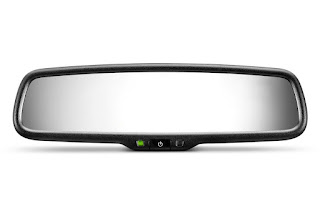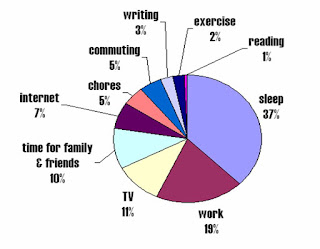Black mirror
The wife and I were driving out one night, when she asked me to help her adjust the rear view mirror. I'm quite a bit taller than her, so whenever she takes the wheel after I was the last person to drive the car, she has to wiggle the mirror into the right position.
But this time, try as she might, she couldn't seem to adjust it to see behind her. So I tried to adjust the mirror for her, while she stopped by the side of the road just outside our place. But I couldn't do it either - the mirror just seemed to be unable to show the rear window. It was utterly mystifying!
Then it struck me. I adjusted the mirror to look straight into it and realised that I couldn't even see my own face. Even more creepy! After I discarded the momentary (and alarming) thought that I'd somehow turned into the Asian Edward Cullen (the angst ridden Twilight vampire for all you non-teen fiction fans XD), I realised that the mirror had been blackened.Just as I was entertaining the even more irrational thought that the climate change tipping point had finally happened and disastrous UV light had mysteriously destroyed all mirrors globally, my wife noticed that the dashboard was signaling that the car door on my side had not been closed properly. I hurriedly closed the door, and in seconds the mirror was back in order (and sadly I looked nothing like Edward Cullen).
After driving our car for years, we'd finally discovered a new safety feature - besides the warning light on the dashboard, the car's rear view mirror also turns black if any of the doors are not properly closed!There's no way to switch off the mechanism other than by actually closing the doors, and it's essentially a feature to warn drivers, compel them to stop (because it's horribly difficult to drive without the rear view mirror) and close the doors before moving on.
It totally worked! I had no idea that this technology of blacking out mirrors existed, or that our rear view mirror was anything more than plain silvered glass.
Coincidentally, I'd just been reading "Where is God when it hurts" by Phillip Yancey, something I've been meaning to do for years. In the opening chapters, he narrates a really interesting story about the work of Dr Paul Brand, a pioneering doctor and researcher in leprosy.According to Wikipedia, Dr Brand was the first physician to appreciate that leprosy is not a disease of the tissue, but of the nerves. The loss of the sensation of pain causes leprosy patients to do things that hurt themselves, like holding onto things that are too hot, sharp objects and so on. It is these unnoticed and untreated injuries that lead to disastrous tissue destruction.
Dr Brand tried to find ways to alert patients that they were injuring themselves. Gloves with lamps that light up, or speakers that beep, or mechanisms that buzz and vibrate, and so on. But he found that none of these worked. Because people ultimately just ignored the signals and went on with their self-harming behaviour - even though they were being told that something was wrong.
The only alert mechanism that actually worked was - get this - a small electric shock triggered by the gloves to the armpit!Yancey quotes Dr Brand as saying "We also found that the signal had to be out of the patient's reach... even intelligent people, if they wished to do something which they were afraid would activate the shock, would switch off the signal, do what they had in mind to do, and then switch it on again when there was no danger of receiving an unpleasant signal. I remember thinking then, how wise God had been in putting pain out of reach."
Having a device that gives electric shocks that can't be switched off was, understandably, concluded as being not a Good Idea. It was too expensive, too prone to mechanical failure, and it was impossible to replicate human sensibility to pain. So he eventually gave up on the project altogether - concluding that he was unable to design a mechanism to substitute for God's design - pain.
Dr Brand's research led him to conclude that pain, like many other unpleasant things in this life, is a gift. The cause of the leper's misery is that he can't feel pain. Being able to turn the pain "switch" off allows him do things that harm him.It's like our car - the light on the dashboard was flashing red, but we could ignore it (to our peril). But the mirror turning black - we couldn't ignore that, and it kept us safe!
It also reminds me of my own idiosyncrasy - I have the alarming ability to go a whole day without drinking water, which my wife quite rightly nags me about all the time. I can sort of "switch off" thirst. Thirst itself, like pain, is a "bad" thing. But being able to switch it off, is actually a worse thing.
Dr Brand gives the further example of guilt. Guilt, like pain, is an unpleasant thing. There's nothing good about guilt or pain in themselves. But they are directional. They point us to something - the root problem - that needs to be resolved. An illness or injury or self-harming behaviour, in the case of pain. A broken relationship or unwise conduct, in the case of guilt.As Phillip Yancey puts it - things like pain and guilt are symptoms of a condition that require our urgent attention. The symptoms are no fun, but they alert us to our condition. Ignoring or switching off the symptoms is not a Good Idea.
And so it goes for many of the unpleasant things in life. Pain, guilt, loneliness, despair, hopelessness. They're all "bad" things. But they are all directional and point us to acknowledge that there's an issue to be resolved.On a personal scale, these warnings tell us that there's something wrong with what we're doing, and to correct what we're doing. On a global scale, they remind us that this world is broken, and we have a different, better home to come - so don't fall too much in love with this one.
Thank God that these inconvenient, often unpleasant signals can't be lightly switched off. Thank God for safety features that insistently tell us - stop! Something bad is happening - open your eyes to notice what's wrong. Address it before you start charging off again.
Instead of wishfully hoping for life to be numbing sweetness and light all the time, let me learn to appreciate the stop signs, painful or frustrating as they may be, and to do something about them, and re-align, before moving ahead.
Have a great weekend everyone :)
"... We know that suffering produces perseverance; perseverance, character; and character, hope. And hope does not disappoint, because the love of God has been poured out in our hearts by the Holy Spirit who was given to us."
Romans 5:4-5











Comments